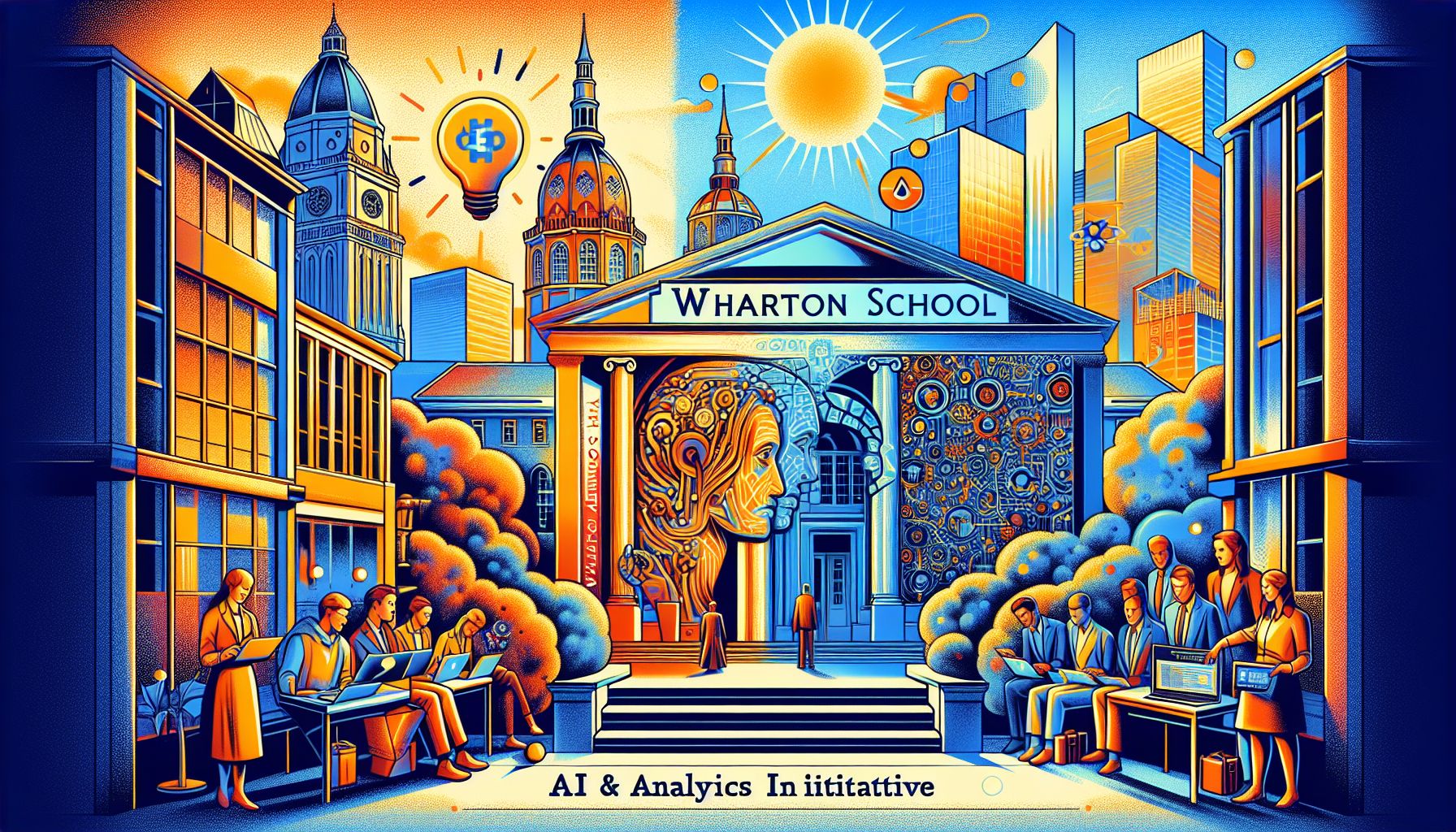Wharton School Invests in AI and Data Science Initiatives

The Wharton School has partnered with OpenAI to expand research and teaching in AI and data science, launching the Wharton AI & Analytics Initiative.
Strategic Collaboration and Resources
The Wharton AI & Analytics Initiative is a significant step forward in integrating advanced AI technologies into business education. This initiative includes the provision of ChatGPT Enterprise licenses by OpenAI to full-time and executive MBA students, marking the first such collaboration between a business school and OpenAI [1]. The initiative aims to address both practical and ethical implications of AI in business, ensuring that students are well-equipped to handle the transformative impact of AI across various sectors.
Leadership and Vision
Leading this ambitious project is Eric Bradlow, Vice Dean for AI & Analytics at Wharton, who emphasizes the importance of understanding AI’s broad impact on disciplines such as marketing, finance, and entrepreneurship [1]. Dean Erika James has highlighted that AI is poised to fundamentally transform every sector of business and society, making this initiative crucial for future business leaders. The initiative will involve scholars from various academic departments, ensuring a multidisciplinary approach to AI research and education.
Educational and Research Funds
To support these efforts, Wharton is establishing the Wharton AI Research Fund and the Education Innovation Fund. These funds will provide faculty with the resources needed to integrate AI into their research projects and curricula [1]. This financial commitment underscores Wharton’s dedication to fostering innovation and staying at the forefront of AI advancements in business education.
Practical Applications and Industry Collaboration
The initiative also includes practical applications through partnerships with industry. For instance, the AI & Analytics Accelerator has seen collaborations with companies like Petco, where student teams developed innovative solutions for enhancing email marketing strategies using machine learning [4]. These real-world experiences are invaluable for students, providing them with hands-on opportunities to apply their knowledge and contribute to business advancements.
Ethical Considerations and Workforce Impact
Wharton professors have also been actively discussing the broader implications of AI on the workforce. In a recent article in the Wall Street Journal, Professors Peter Cappelli, Prasanna Tambe, and Valery Yakubovich argue that AI is not necessarily a ‘job killer’ but rather a tool that can create more tasks and increase productivity [2]. This perspective is crucial as the initiative looks to explore AI’s impact responsibly and ethically.
Future Prospects
Looking forward, the Wharton AI & Analytics Initiative is set to drive significant advancements in both academic and practical realms of AI. By fostering collaboration between academia and industry, Wharton aims to create value-added business solutions and prepare students for the evolving landscape of business and technology [1]. The initiative’s open-source platform for developing GenAI prototypes will further enhance societal functions and learning experiences, cementing Wharton’s role as a leader in AI innovation.

